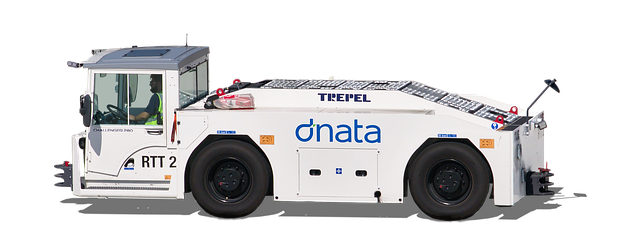Understanding vehicle recall processes is vital for consumers seeking compensation. When manufacturers identify safety defects, they notify the NHTSA and initiate recalls, offering repair, replacement, buyback, or trade-in options. Timely action is crucial. Gather essential documents like proof of ownership and maintenance records to claim compensation for select vehicle recalls, hypercar recalls, or those affecting disabled drivers. Research global recall histories and local regulations to navigate challenges effectively. Stay informed to maximize compensation potential.
Are you owed compensation after your vehicle was subject to a recall? Understanding your rights is crucial. This guide navigates the complex process of claiming compensation for recalled vehicles, breaking down each step from understanding the recall process to overcoming common challenges. Learn about eligibility criteria, necessary documents, and the filing steps involved in selecting vehicle recalls. By following these insights, you can ensure a smooth path to receiving the compensation you deserve.
- Understanding Vehicle Recall Process
- Eligibility Criteria for Compensation
- Gathering Necessary Documents
- Filing a Claim: Steps to Take
- Common Challenges and How to Overcome Them
Understanding Vehicle Recall Process

Understanding the vehicle recall process is crucial when it comes to claiming your compensation. When a manufacturer identifies a safety defect in their vehicles, they are required to notify the National Highway Traffic Safety Administration (NHTSA) and initiate a formal recall. This process involves identifying affected vehicles using detailed records and specific criteria, such as make, model, and production dates. Consumers can access information about active and past recalls through the NHTSA’s online recall search tool, making it easy to check if their vehicle has been affected.
Once a recall is issued, manufacturers are responsible for notifying owners directly. This typically includes sending letters or using other communication channels like email or phone calls. Owners have several options during this period, including taking their vehicles to a dealership for repair or replacement, or in some cases, the manufacturer may offer buyback or trade-in programs. It’s important to remember that timely action is crucial as delays can impact your rights and compensation. The process aims to ensure vehicle safety by addressing known defects, and understanding your options during a recall is an essential step in protecting yourself and your investment.
Eligibility Criteria for Compensation

When it comes to claiming compensation for a vehicle recall, understanding eligibility criteria is key. Not all recalled vehicles qualify for financial recompense, and this largely depends on various factors including the type of recall and your specific circumstances. For instance, when a safety-related issue prompts a select vehicle recalls scenario, manufacturers are legally bound by mandatory safety recall regulations to notify owners and offer solutions. This could include repairs or replacements at no cost to the owner.
Eligible candidates for compensation often encompass private vehicle owners and, in some cases, commercial fleet vehicle operators. The latter, however, may face distinct challenges due to the complex nature of their operations. Nonetheless, accessible commercial fleet vehicle recalls information from manufacturers is readily available via dedicated hotline services, ensuring every party receives up-to-date, accurate details regarding potential compensation claims.
Gathering Necessary Documents

When claiming compensation for a vehicle recall, one of the most crucial steps is gathering all necessary documents. This process involves collecting evidence that demonstrates your ownership of the affected vehicle and its eligibility for the recall. Select Vehicle Recalls require specific paperwork to ensure a smooth claims process.
Key documents include proof of purchase or registration, service records detailing routine maintenance and any previous repairs related to the recall issue, and identification materials for all registered owners. For individuals with disabilities who may face unique challenges during this process, ensuring access to recall support for disabled drivers is essential. Additionally, understanding one’s rights in class action lawsuits for vehicle recalls can be beneficial, as historical analyses of auto recalls, including government-mandated vehicle recalls, show that collective actions often lead to more favorable outcomes.
Filing a Claim: Steps to Take

Filing a claim for compensation due to a vehicle recall is a crucial step in ensuring your rights as a consumer. When considering select vehicle recalls, whether it’s for gas tank recalls and safety or bus and truck safety recalls, understanding the process is key. Begin by gathering all necessary documentation, including proof of ownership and maintenance records. Next, research the specific recall notice related to your vehicle, focusing on the provided instructions and deadlines.
The steps typically involve contacting the manufacturer or authorized dealer, who can guide you through the claim process. For more high-performance vehicles like hypercars, where hypercar recalls: performance & safety are not uncommon, these steps remain consistent while also requiring an assessment of any impact on vehicle value and performance. Always stay informed and act promptly to maximize your compensation potential.
Common Challenges and How to Overcome Them

When claiming compensation for a vehicle recall, several common challenges often arise. One significant hurdle is the selective nature of recalls, where not all vehicles are affected equally. This can lead to confusion and frustration among owners, especially when their specific model or year range is excluded from the official list. To overcome this, drivers should conduct a historical analysis of auto recalls and research any previous incidents related to their vehicle’s make and model. Staying informed about safety standards and tire safety regulations worldwide can also help identify potential issues not yet addressed by manufacturers.
Another challenge is navigating region-specific recall laws, which vary across countries and even states. This complexity necessitates a thorough understanding of the legal framework governing government-mandated vehicle recalls in the relevant jurisdiction. Owners should consult official sources, such as national transportation safety boards, to ensure they are aware of all applicable rights and procedures for claiming compensation. Additionally, keeping detailed records of maintenance, repairs, and any communication with the manufacturer regarding recall issues can significantly strengthen a claim during the reimbursement process.
When navigating the complex process of claiming compensation for a vehicle recall, understanding your rights, meeting eligibility criteria, and gathering accurate documentation are key. By following the comprehensive steps outlined in this guide, from recognizing eligible recalls to filing a claim, you can confidently assert your entitlements. Remember, each vehicle recall is unique, so stay informed and be prepared with the necessary paperwork. With the right approach, you can successfully navigate this process and secure the compensation you deserve for your affected vehicle.
